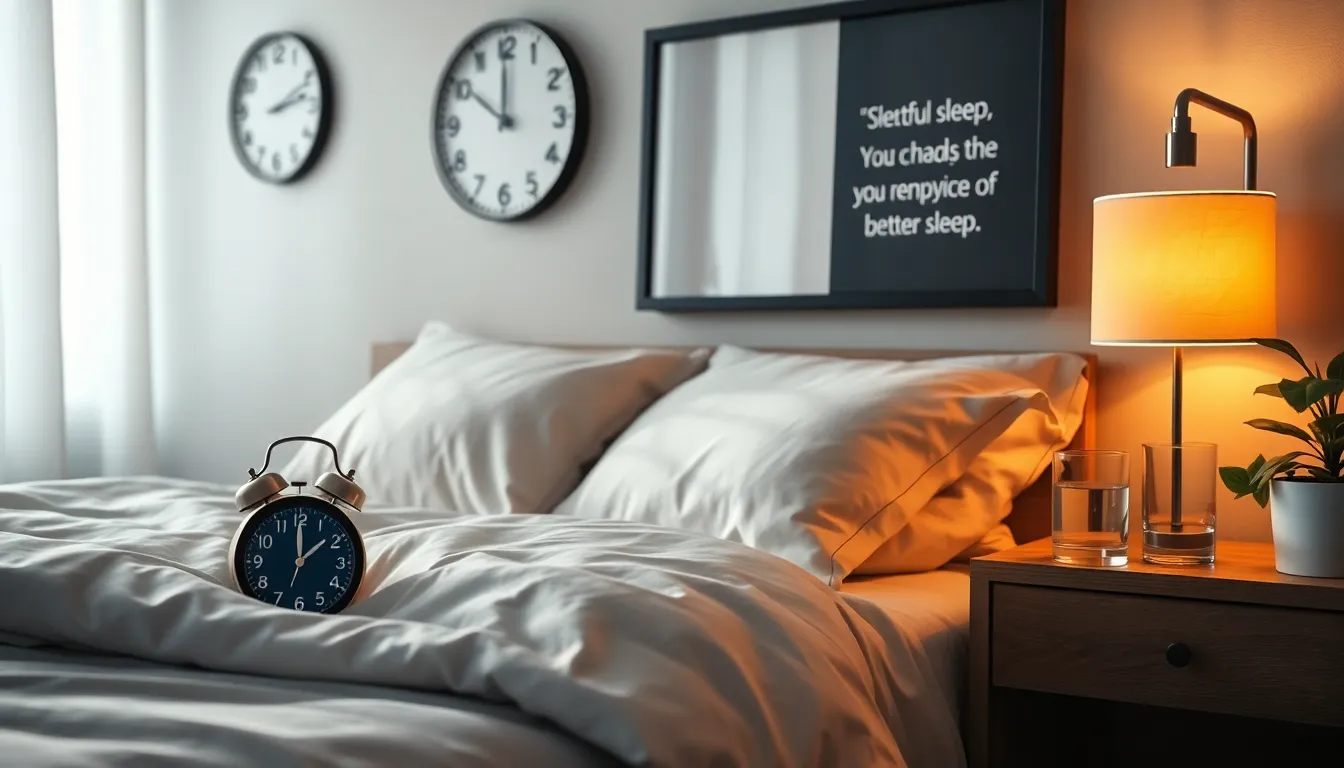Table of Contents
ToggleEver wondered if it’s possible to pack eight hours of Zs into just four? Well, you’re not alone. Picture this: after a long day, you’ve got a mountain of tasks to complete. Sleep might seem like a luxury, but what if you could transform those precious hours into a full night’s rest, only in half the time? Here’s the thing, getting quality sleep isn’t about time: it’s about strategy. Let’s jump into the art of maximizing your snooze so you can conquer the day without feeling like a zombie.
Understanding Sleep Cycles

Sleep isn’t just a pillow fight: it’s a complex series of cycles your body goes through each night. Divided into two main types, deep sleep and REM sleep, understanding what happens while you’re off in dreamland is key to squeezing out maximum rest from limited time.
The Importance Of Deep Sleep
Deep sleep, also known as slow-wave or NREM sleep, is where the magic happens. During this phase, your body repairs itself. Muscle growth, tissue repair, and immune system strengthening all occur here. Without enough deep sleep, one might feel groggy, sluggish, and ready to call in sick to life. Prioritizing this stage can help he or she wake up refreshed, even if the clock only says four hours.
The Role Of REM Sleep
Now, let’s talk about REM (Rapid Eye Movement) sleep, the time when dreams come alive and your brain gets a workout. This sleep phase improves memory and emotional regulation. During REM, the brain processes the day’s experiences and helps store them. So, if they’re looking to make those four hours count, having sufficient REM is critical, think of it as the brain’s own personal housekeeper.
Strategies For Maximizing Sleep Efficiency
Maximizing sleep efficiency is all about being smart with those precious hours. Below are some battle-tested strategies that could make a world of difference.
Caffeine And Sleep Management
Ah, caffeine, the love-hate relationship that many have. While it provides an energy kick, consuming caffeine too late in the day can become a sleep saboteur. Try to limit caffeine intake to the early part of the day. Doing this allows your body to naturally wind down as bedtime approaches, creating the ideal conditions for quality sleep.
Napping Techniques For Better Rest
Naps can be a secret weapon in the quest for quality sleep. A quick power nap of 20-30 minutes can refresh and recharge without entering deep sleep, which might leave one feeling disoriented or groggy. If he or she can schedule a nap before the main sleep period, it can help reduce the pressure to get those eight hours in one go.
Creating A Sleep-Conducive Environment
The ambiance of a room can make or break a sound night’s sleep. Here are some tweaks to consider.
The Power Of Sleep Aids And Supplements
Supplements like melatonin can play a pivotal role in regulating sleep cycles. This naturally occurring hormone can help signal the body that it’s time to wind down. Also, certain herbal teas like chamomile or valerian root can be soothing. Always consult with a healthcare provider before diving into supplements: they need to choose the right ones for them.
Mindfulness And Relaxation Techniques
Incorporating mindfulness and relaxation techniques like meditation or deep breathing can make the transition to sleep smoother. These practices reduce stress and anxiety, allowing the mind to turn off and the body to relax – perfect for maximizing those four hours.
Maintaining A Healthy Lifestyle
An active and healthy lifestyle can also contribute to improved sleep quality. Here are a couple of lifestyle adjustments one can make to ensure restful nights.
Balancing Work, Life, And Sleep
Time management is crucial in today’s fast-paced world. He or she should consider setting boundaries. Prioritizing tasks in a way that allows them to complete work without cramming at night will make turning in feel less like a chore.
Exercise And Its Impact On Sleep Quality
Regular exercise can promote better sleep. A good workout releases endorphins and helps the body feel physically ready to rest. But, it’s important to avoid heavy exercise close to bedtime, as it might have the opposite effect. Early morning or afternoon workouts are usually the way to go.





